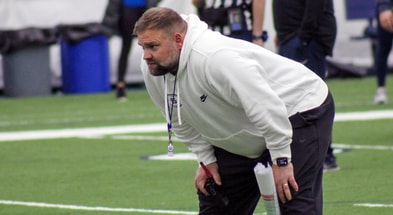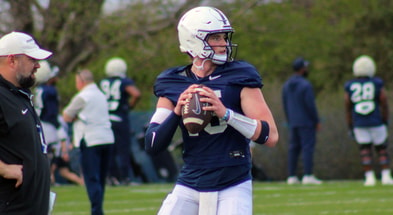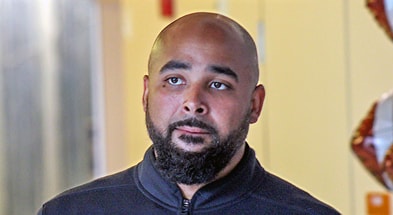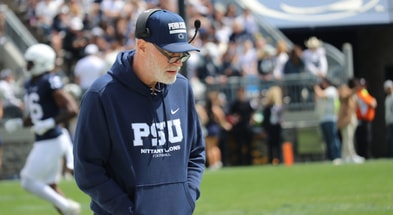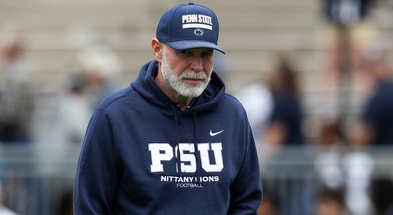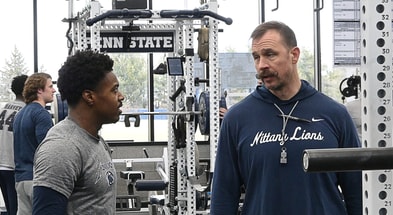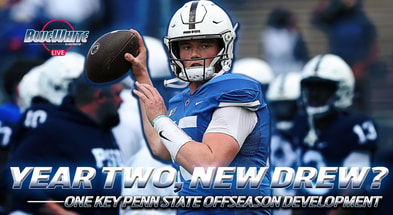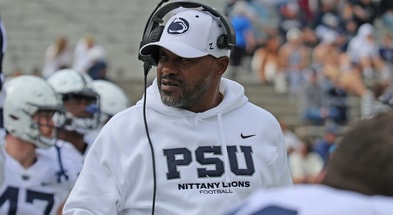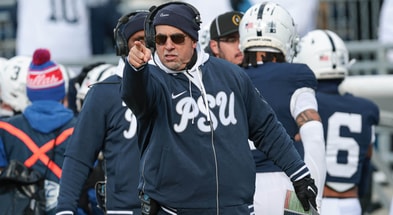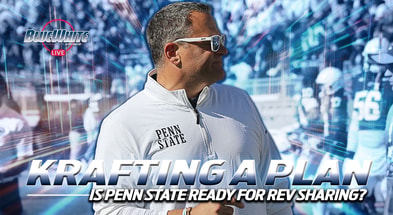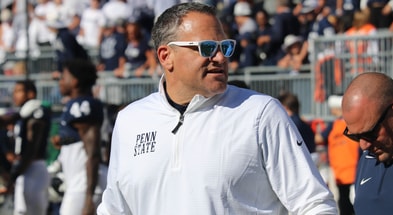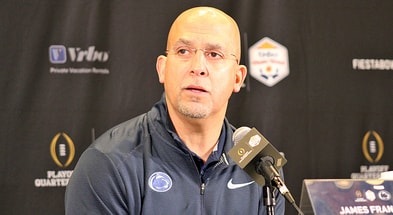Pat Kraft on reports of Penn State joining Elevate’s College Investment Initiative: 'We have no affiliation or involvement with any private equity firm or fund'
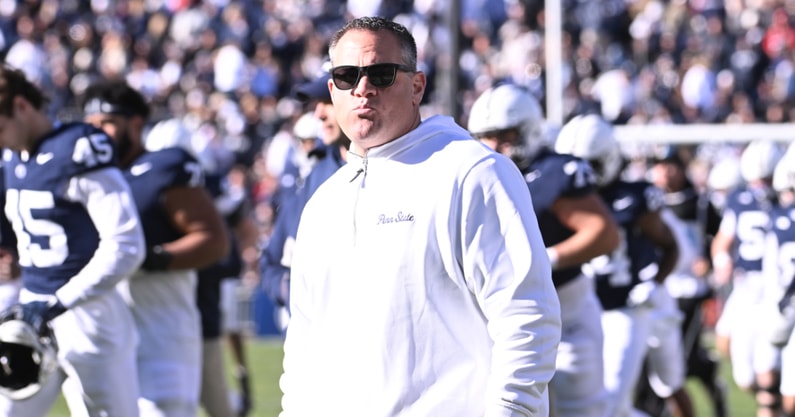
Penn State athletics has “no affiliation or involvement with any private equity firm or fund,” the school’s athletic director, Pat Kraft, said in a statement to Blue-White Illustrated. It comes on the heels of a Monday afternoon report from Sportico, which On3’s Pete Nakos confirmed, stating that the Lions are one of two schools, along with UCLA, that have signed up for sports consulting firm Elevate’s $500 million College Investment Initiative. Yahoo Sports first reported on Kraft’s statement about the news. It reads as follows:
“Elevate serves as our partner in ticketing strategy and operations. To clarify, our relationship is strictly limited to these services. We have no affiliation or involvement with any private equity firm or fund.”
UCLA athletic director Martin Jarmond also denied the report in a statement to Yahoo Sports.
Penn State picked Elevate “to lead fan engagement, ticketing, and premium seating and experiences strategy,” in August of 2024. At the time, a released statement from Kraft focused on what Elevate could provide when it comes to the premium seating areas coming to the renovated Beaver Stadium in 2027, among other things.
“Our partnership with Elevate will take our seating and experiences strategy to the next level,” Kraft said last year. “One of the premier agencies in the country, Elevate brings unparalleled expertise that will help us maximize our premium seating and experiences in a renovated Beaver Stadium by enhancing the game day with unmatched customer service and fan experiences. Elevate will also play a critical role in driving revenue growth that will support all 31 athletics programs through well executed ticketing strategies.”
More: As rev-share era approaches, Penn State Athletics adds staff to key department
Elevate’s eight-figure College Investment Initiative was announced on Monday. At the time, reports said two schools were already on board with it, but the company would not disclose which ones they were. Speaking about the fund itself, Elevate’s chief business officer for college, Jonathan Marks, told On3 that:
“It’s upfront capital, as we do have a multi-year agreement for Elevate services and from a payback perspective as well, on that capital investment. We believe that the $500 million is just a starting point. With the discussions that we’ve had before the announcement, to what we’re having now, we firmly believe we’re going to be able to increase that significantly, and expect to have another three to five or six deals done by football season. We expect that number to continue to grow from there.”
Top 10
- 1New
Ed Orgeron
Takes issue with Alabama fan
- 2Hot
Zakai Zeigler
Ruling made on eligibility
- 3
ACC - SEC Challenge
2025 Matchups Set
- 4Trending
Vince Marrow
First public comments
- 5
CFB Top 25
ESPN releases future rankings
Get the On3 Top 10 to your inbox every morning
By clicking "Subscribe to Newsletter", I agree to On3's Privacy Notice, Terms, and use of my personal information described therein.
Kraft’s Monday afternoon statement aligns with what he said at Big Ten Media Days a year ago, when he questioned why Penn State would take private equity funding.
“Why would I give up my money? They basically are saying that, ‘We’re done. We don’t know how to run our business.’ But you got to get money back to private equity. They don’t just give you money,” Kraft said last July.
“We’re in the Big Ten. Can someone guarantee me my Big Ten revenue every year? But like, why would I, why would Penn State, take private equity money? I got 94,000 season ticket holders. We sell out hockey, we sell wrestling. I got the best fan base in the country. Why do I need private equity? Someone tell me.”
All of this news comes following the approval of the House vs. NCAA legal settlement last Friday. It, among other things, allows colleges to pay players directly for the first time. Penn State is one of the many athletic departments that is expected to spend the maximum, which is $20.5 million.
